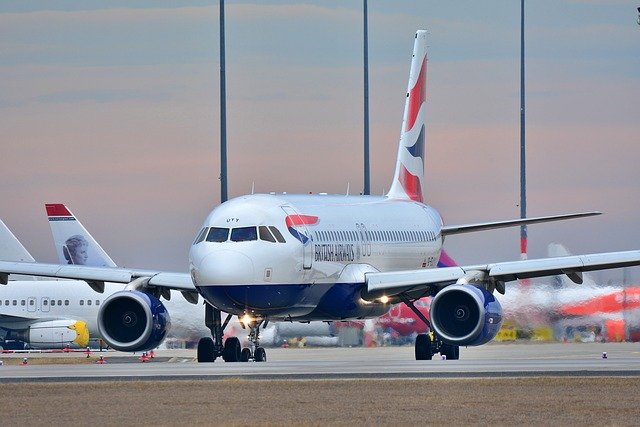Affordable Flight Training and Pilot Career Options in the U.S. for 2025
Did you know many airlines in the United States now offer funded flight training programs that can cut your pilot training costs significantly? Discover practical steps to find the right flight school, financial aid, and career paths to jumpstart your aviation journey this year.

Overview of Aviation Training Programs for Aspiring Pilots
Starting a career in aviation typically involves enrolling in a professional training program that comprises flight training, certification, and ground school education. The United States features various flight schools offering pilot training programs with diverse durations and course structures:
- ATP Flight School offers an Airline Career Pilot Program aimed at taking individuals from zero flight hours to airline pilot qualification generally within 9 to 12 months. This program is available at over 80 training centers nationwide, including Massachusetts, with fixed pricing beginning around $86,995, which may differ based on prior credentials like a private pilot certificate. ATP Flight School partners with several airlines to offer career pathway advice and mentorship.
- Florida Flyers Flight Academy in St. Augustine, Florida, provides commercial pilot training courses lasting about 9 to 12 months, with estimated costs near $42,000 for commercial pilot certification. Their programs include private pilot, instrument rating, commercial pilot, multi-engine training, and flight instructor certifications.
- Other institutions such as the University of North Dakota, Western Michigan University, California Institute of Technology (Caltech), Purdue University, and Arizona State University Polytechnic Campus present combined academic and flight training programs. These may offer traditional degree routes or accelerated flight certifications and employ varied training methods.
Flight training programs often emphasize practical flying experience, use of modern aircraft equipped with advanced avionics, and adherence to industry safety standards.
Information on Airline-Sponsored Flight Training and Tuition Assistance Programs
Flight training expenses, often exceeding $80,000, have prompted some U.S. airlines to provide sponsorship or cadet programs offering financial aid and career development support.
- Delta Air Lines Propel Program delivers financial assistance during pilot training, along with mentorship from seasoned pilots and a structured career path, contingent on eligibility and service commitments.
- United Airlines Aviate Program offers financial backing via training partnerships and includes mentorship and career guidance. Participation requires meeting certain criteria.
- American Airlines (through Envoy Air) and Mesa Air Group maintain tuition reimbursement programs that provide partial or full repayment following completion of training and fulfillment of service agreements.
- Flight schools such as ATP Flight School and Skyborne Airline Academy collaborate with airlines on cadet programs that supply funded training and support with routes to employment.
These programs usually impose eligibility standards such as age, education, and medical certification, and often require participants to commit to set service durations with sponsoring airlines.
Options for Financing and Scholarships in Flight Training
For those not enrolled in airline sponsorship initiatives, alternative financing and scholarship options exist to help manage training costs:
- Meritize Loans present financing options influenced by academic performance or military background, sometimes allowing deferred repayments until training completion.
- Private Student Loans, including offerings from institutions like Sallie Mae, provide funding specifically tailored for flight training, usually with flexible repayment plans.
- Scholarships from organizations such as the Honourable Company of Air Pilots (GAPAN) and the Aircraft Owners and Pilots Association (AOPA) offer merit-based financial aid available through application procedures.
These alternatives add valuable resources for individuals funding pilot education on their own.
Early Career Flight Roles and Support Services
Many newly certified pilots gain experience by serving as flight instructors to accumulate the flight hours required by airlines. Some training programs include pathways to become certified flight instructors (CFIs), allowing graduates to build flight experience while earning income. This process typically spans 18 to 24 months depending on individual progress.
Flight schools frequently provide career placement assistance through specialists who connect graduates with regional and major airlines. Mentorship programs and alumni networks also offer continuous career guidance.
Aviation Training and Career Paths Beyond Pilot Roles
The aviation industry includes numerous roles apart from piloting, such as airport operations, customer service, aircraft maintenance, and facility services like cleaning and security.
Although specific free courses for airport employment roles (such as cleaning or security) may not be extensively listed in national aviation training resources, community colleges and workforce development centers around the United States—including Massachusetts—offer vocational training programs related to airport operations, security, and facilities management. These programs can equip individuals with skills relevant for jobs in airport environments.
Steps to Consider When Planning Your Aviation Career in 2025
- Research Aviation Training Programs: Examine options like ATP Flight School, Florida Flyers Flight Academy, and university aviation programs to identify training matching your career objectives and budget.
- Explore Airline Sponsorship and Cadet Programs: Investigate initiatives by Delta, United, American Airlines, and others, reviewing their eligibility requirements and benefits.
- Look Into Scholarships and Financing Alternatives: Utilize financial aid sources and loan programs to support your training expenses.
- Prepare for Flight Instructor Opportunities: Consider post-training roles as CFIs to gain experience and build flight hours under professional supervision.
- Investigate Airport Operations Training: For non-pilot career paths, explore local training programs offered by community colleges or workforce initiatives related to airport services.
In 2025, the United States provides diverse aviation training and career opportunities supported by established flight schools, airline-sponsored programs, financing choices, and career development services. Whether pursuing a pilot profession or other aviation-related roles, understanding and leveraging available resources can help you chart a course suited to your personal and professional ambitions.
Sources
- ATP Flight School - Airline Career Pilot Program
- Flight School USA - Florida Flyers Flight Academy
- Leopard Aviation - Will Airlines Pay for Flight School?
Disclaimer: All content, including text, graphics, images and information, contained on or available through this web site is for general information purposes only. The information and materials contained in these pages and the terms, conditions and descriptions that appear, are subject to change without notice.




